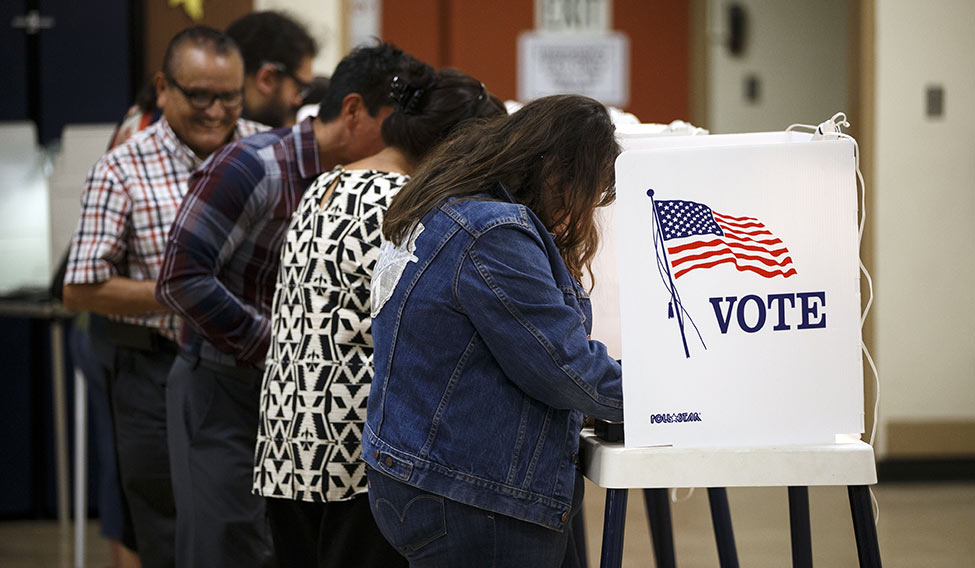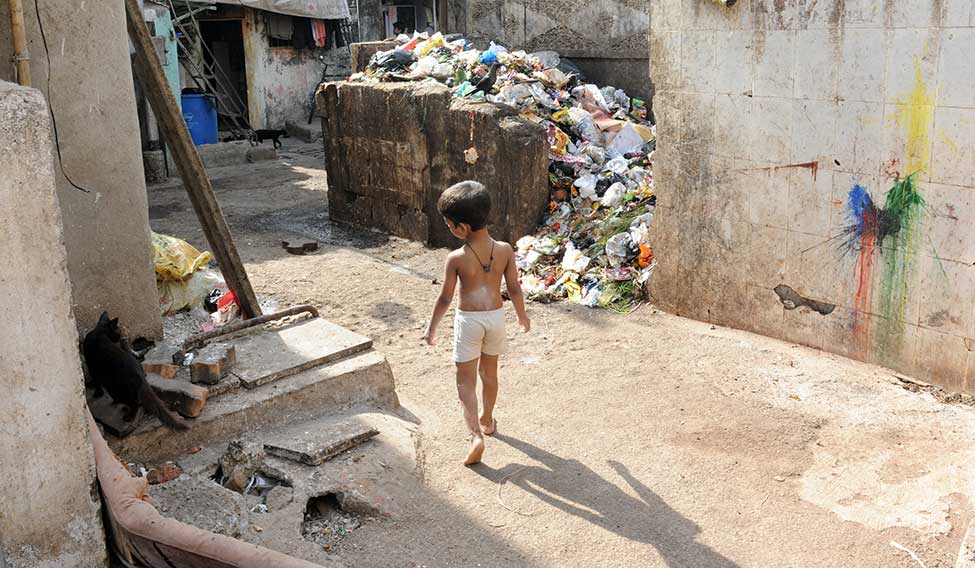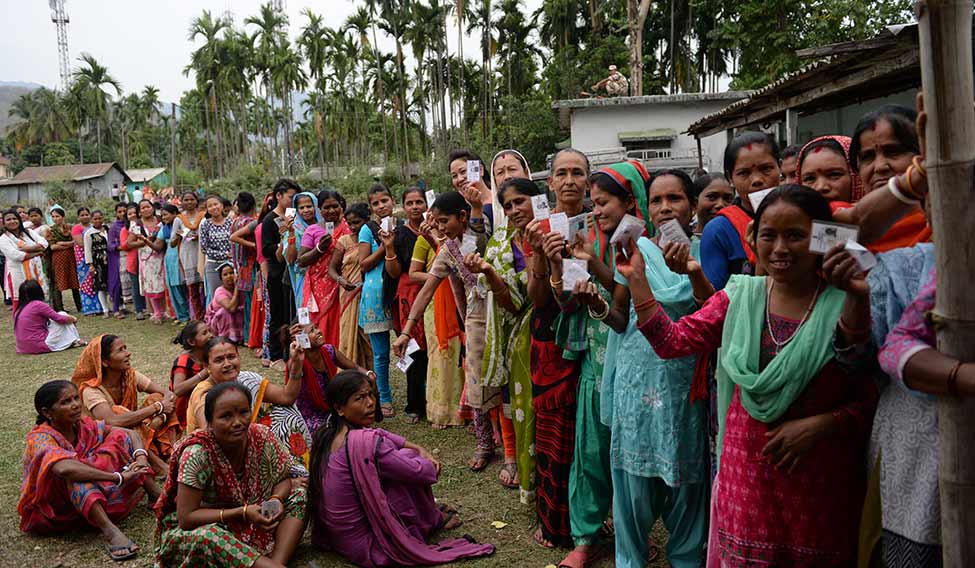
In the last two US presidential elections, voter turnout stood at around 58 per cent. Obama or Romney, Clinton or Trump? Both ballots represented significant moments of choice for the American people, as they decided what sort of economic and social future they wanted. But, aided by barriers to voter registration that discriminate against the poor and some minorities, many did not turn out.
What of India during the 2014 general election campaign? For a start, this was the largest poll in history: 834 million eligible voters, more than 8,000 candidates and nine lakh polling stations, including one in Arunachal Pradesh that was set up for just two voters. In the end, 554 million people cast their vote—66.4 per cent of eligible voters.
This was a higher turnout than at India’s previous two general elections. In everything from assembly to panchayat elections, including in places where, for example, the Maoists encourage citizens not to vote, India has a record of electoral participation that exceeds other countries. Unlike in America, people in India who have very little think they have a reason to participate in democracy. To quote Bernie Sanders: “Poor people don’t vote. I mean, that’s just a fact. That’s a sad reality of the American society.”
What, then, of the relationship between a voter and political parties, with their grand campaign promises? When the members of the Constituent Assembly decided in November 1949 to give the vote to every adult—women and men, landless and landed—they were pioneers, rewriting the rulebook for mass democracy. Political theorists scratched their head, and naysayers like Sir Winston Churchill predicted it would lead to catastrophe. For the first time, a large, poor, recently decolonised country was extending the franchise to the illiterate majority.
Voting embedded itself quickly into Indian life. In my experience, talking to potential electors at ground level in different parts of the country at election time, one of the most striking things about any campaign is that those who are unable even to write their own name will have a clear idea of what they expect from a neta. It may be a job, a new road to their village, or regular supply of electricity. A campaign promise is a transactional proffer that the Indian voter knows how to read, and if a political party fails substantially to deliver, it will be thrown out at the next election.

I would argue that far from suffering from a deficit of democracy, India is hyper-democratic. It is, however, a version of democracy that leaves many unsatisfied, feeling that it operates more in theory than in practice. Popular frustration with bureaucrats or with ‘politics’ itself can often be intense. There are two principal reasons for this: representation and, more significantly, governance.
Let us deal with representation first. The reason why democracy is seen as such an attractive form of government is that it allows participation: anyone can aspire, as a citizen, to join those in office and serve their nation. You do not have to be born a prince to become a king, or wield a sword to fight your way to power. In practice, however, political parties in India are now often a closed loop. The only party that is at present dedicated to generating a mass membership is the BJP. Over the last decade or so, it has become increasingly difficult both at national and at state level for those who do not have dynastic connections or money to get started in politics. The effect of this barrier to aspiration is to make people cynical about the process: India needs to think about mandatory intra-party democracy, in order to protect itself.
The second reason for frustration with democracy is over the issue of governance: it can often be bad, and this is linked to the composition of state authority. Nearly 70 years after independence, many of the structures of the colonial state remain: state governors, inspector generals, ordinances. Dominant executive power is vested in the prime minister and chief ministers. A bureaucrat, a tax inspector or a police officer usually has to operate at the whim of a powerful neta. This encourages those who should be professionals to seek proximity to political power, at all levels, and to maintain their position by second-guessing the leader to whom they show allegiance.
 System failure: The lack of capacity to implement projects often thwarts well-intentioned initiatives, like the Swachh Bharat Abhiyan | Amey Mansabdar
System failure: The lack of capacity to implement projects often thwarts well-intentioned initiatives, like the Swachh Bharat Abhiyan | Amey Mansabdar
Conversely, a politician coming into office will often feel thwarted by the lack of capacity within the system. Why can’t we just pass a law, and have it implemented? In numerous fields—from the maintenance of the rule of law to vital positions in the civil service—there are simply not enough skilled and experienced people to execute policy. It is remarkably difficult to recruit from outside the system. Because of this, the tendency for any ambitious politician is to announce a breathtaking new policy without having secured the infrastructure to make it implementable. Take the case of Swachh Bharat Abhiyan, a laudable idea that is often unfulfilled. It is still usual to see rubbish strewn across a street, and for nobody to have a clear idea as to which part of the municipal authority is responsible: so a failure to perform has no sanction.
Democracy is a complex beast. Globally, it may be falling out of fashion, with more and more younger people believing voting is not essential to the effective running of a country. India is perhaps the exception: any politician who tried to unravel the electoral system would be quickly booted out of office. The nub of frustration with politics, whether at a local or national level, is usually over the failure of good governance and the implementation of policy. For this to improve, greater flexibility needs to be built into the system.
India remains the world’s largest democracy at a time when large parts of the world are entering an age of uncertainty. If it can make democracy function better, and produce governance that is responsive, it will provide a bulwark and an example against the global forces of instability.
French is the author of India: A Portrait.











